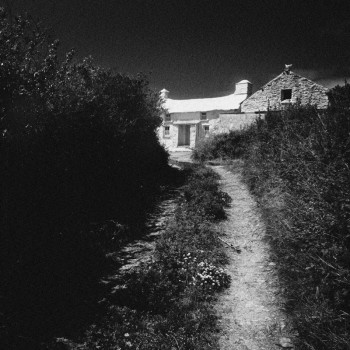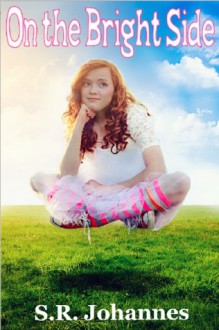 I must say, looking at the cover of the book and the blurb on the back, I was expecting much more of a ‘chick-lit’ book than I got. I also got this vibe from the little bullet points on the first page suggesting this might be an ideal Mother’s Day gift (I read an uncorrected proof). After reading it, I wouldn’t say that either of these statements actually hold true, and I think they might be selling the story short.
I must say, looking at the cover of the book and the blurb on the back, I was expecting much more of a ‘chick-lit’ book than I got. I also got this vibe from the little bullet points on the first page suggesting this might be an ideal Mother’s Day gift (I read an uncorrected proof). After reading it, I wouldn’t say that either of these statements actually hold true, and I think they might be selling the story short. The emotional life of the main character, eight year old Nicky, is enacted in his little plays, that probably owe more to Shakespeare than to the Arthurian legends, although it is the Arthurian legend that features in the book's conclusion. They provide a nice little narrative throughout the play and relieve Nicky from the burden of having to emote too often. As a result I think that Nicky’s voice is quite realistic, with his misperceptions, misunderstandings and his ability to overhear conversations, when he doesn’t really mean to, very evocative of childhood (at least as I remember it).
I’m afraid most of the adult female characters - Nicky’s mum Jenny; Grandpa’s girlfriend Rose and even Nicky’s Grandma Didie - do not fare so well in the book. I found they came across as a tad self-absorbed; dismissive of the consequences on others of their actions and at times ‘snappish’. While I understood the arc of these characters throughout this story, and understood how they came to do the things they did, I did not warm to them. I understand that Jenny probably had dealt with quite a number of years of Frank’s (her husband and Nicky’s father) neglect, and this had eroded much of the emotional bond between them, nonetheless, I found some of her actions towards others in the final stages of the book insensitive at best. Given that Rose was Didie’s nurse, it is clear that her boundary transgression in commencing a relationship with Grandpa had consequences which also impacted on others around her. And poor Didie didn’t really fare well in many of the characters’ memories of her. Don’t get me wrong, I’m not saying that these characters shouldn’t have been there. They were great, they added colour and texture to the book and I think Kelly did a great job in her handling of them. It’s just, given the above, I’m not sure about the ‘great Mother’s Day gift’ sales strategy.
It is the father Frank, who I came to feel the most affection for, after Nicky of course, and whose character grows beyond the expectations I had of him at the start. He is a typical footy tragic who finds it hard to talk to his family about anything else, and has abrogated much of the responsibility for the maintenance of the family bonds to his wife. But as Nicky’s family falls apart, it is probably footy that provides a bridge for them with their new family dynamic. The dramas on the footy field also provide an echo of the dramas in the family home, being Frank’s adult version of Nicky’s plays. It’s almost like the story has been told in three languages - the English language, that of fairy stories and footy lingo. It isn’t ham-fisted, it is just up to the reader to latch onto whatever they like. I enjoyed reading how gently and tentatively Frank stepped up to the plate and managed Nicky and Pippa’s (Nicky’s older sister) emotional needs. This was as much of a surprise for me, as was the unravelling of the female characters.
The most enjoyable aspect of the book was Nicky’s voice. There was no manufactured whimsy, and while he had his fantasy life, it didn’t take over his perceptions. Nicky always maintained an awareness of his world around him, and it was this world around him that encroached on his fantasy life, not the other way around, which was a relief. His fantasy life was a tool for Nicky to try to come to terms with what has happening in the ‘real world’, not a means of denial. As a result Nicky did not come across as precocious, he came across as a little boy valiantly trying to understand the world around him and trying to hold on as events over took him.
I think this is a great book for anyone who wants to read a story about a family seen through the eyes of an eight year old boy, that isn’t too girly and that features footy, Shakespeare and Arthurian Knights. It’s a very enjoyable read, not too light, but not too heavy either.

 Log in with Facebook
Log in with Facebook 










